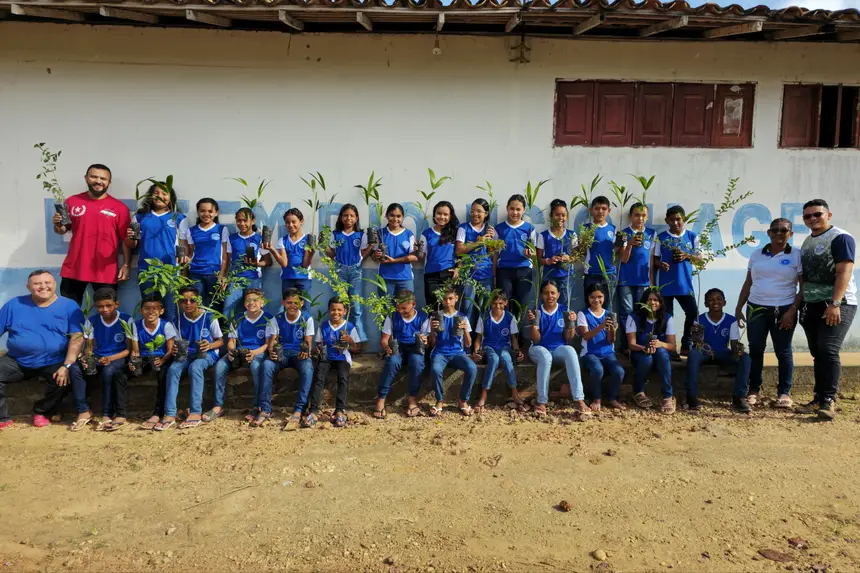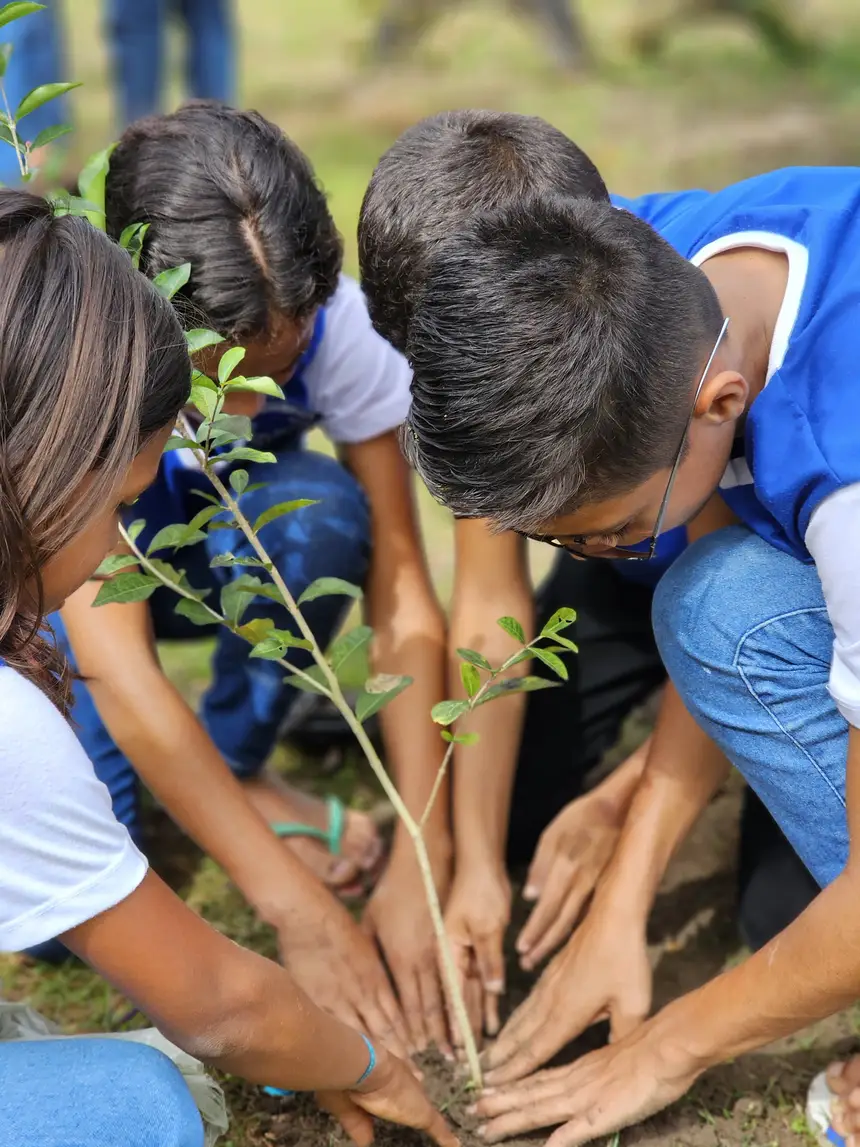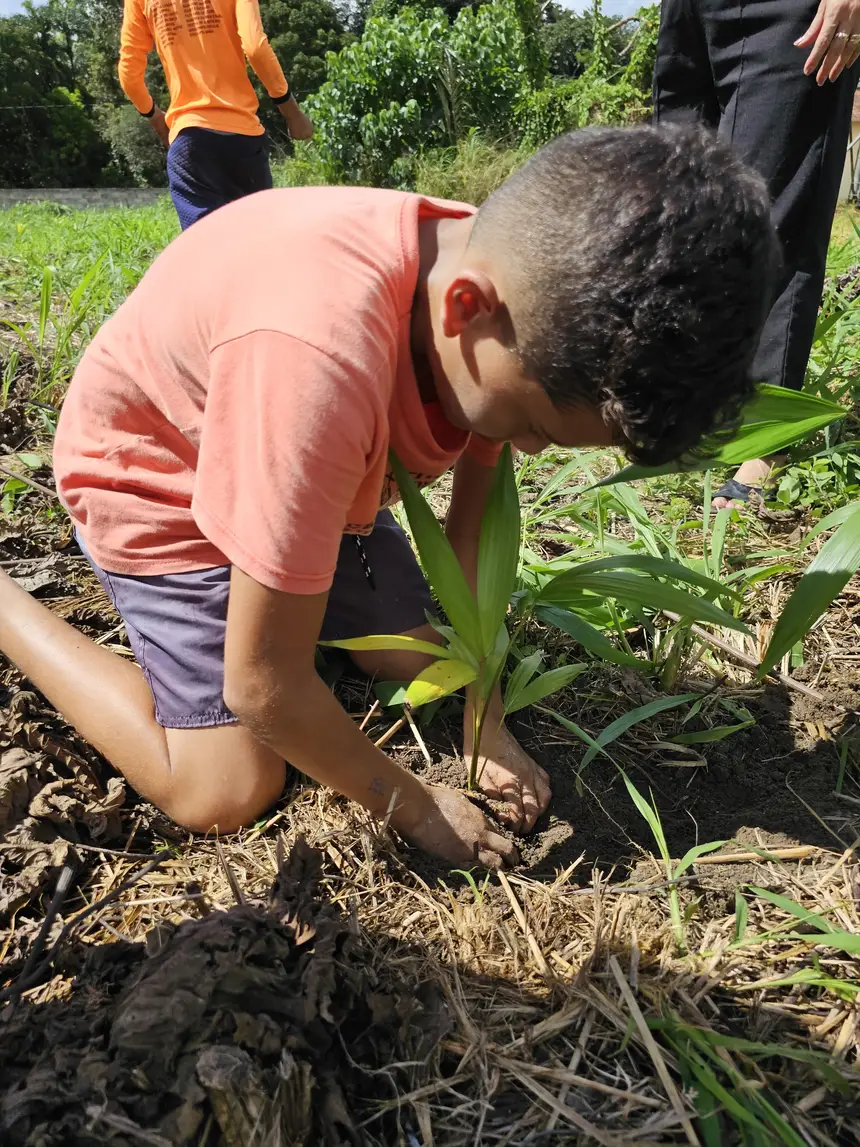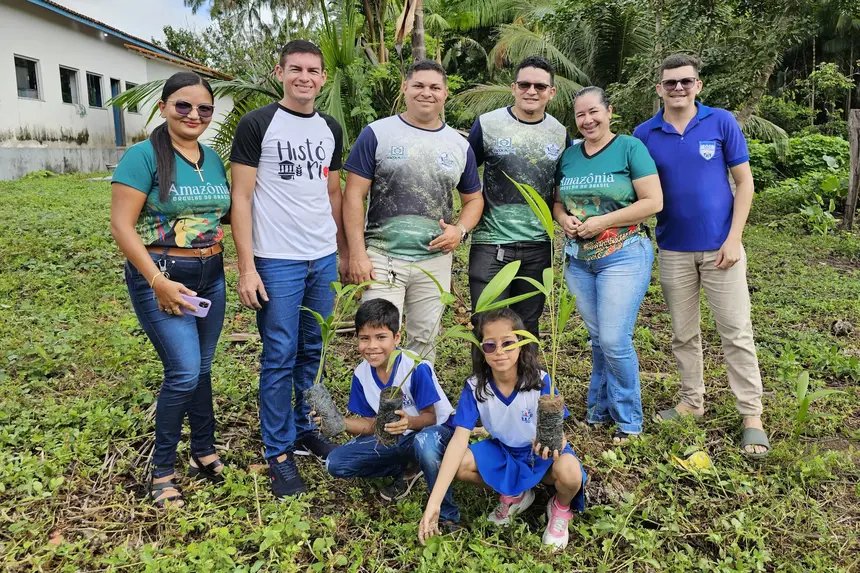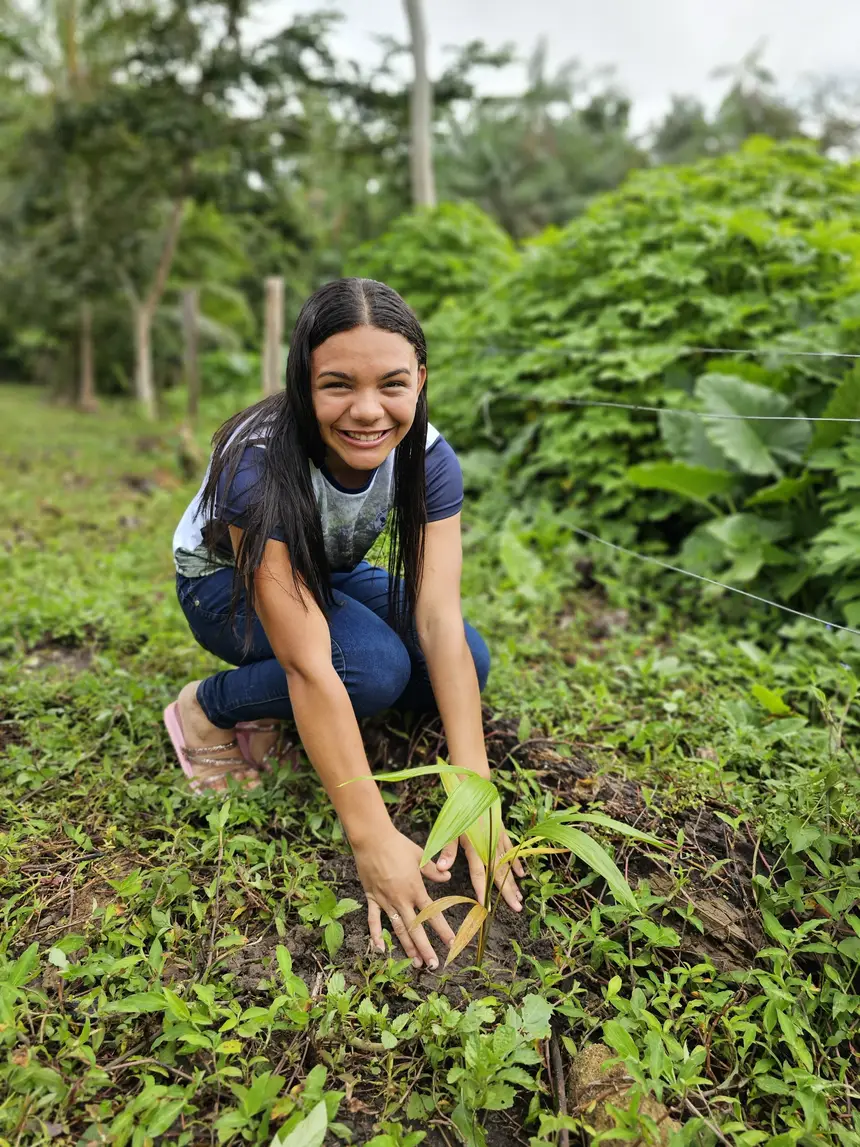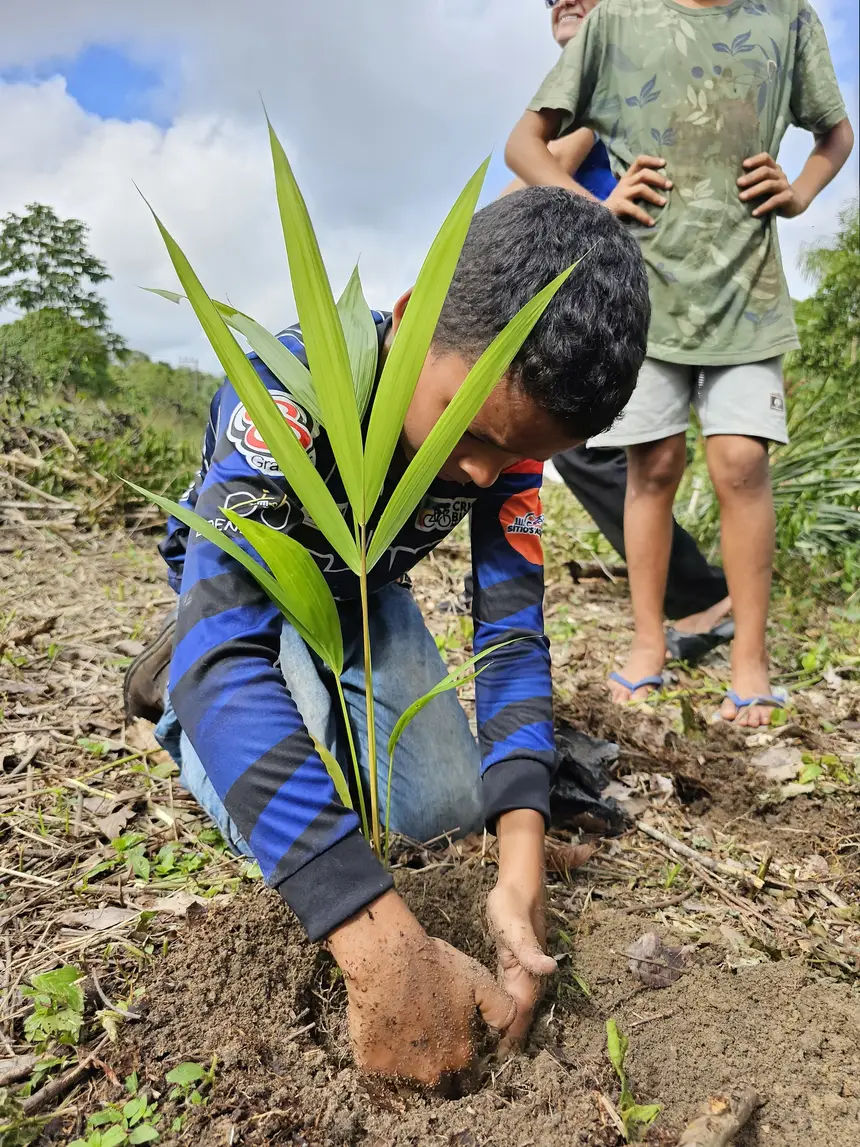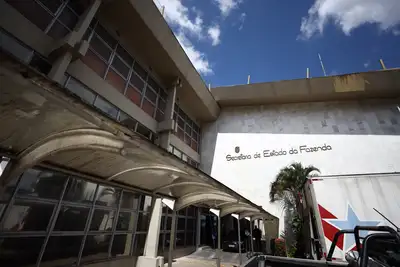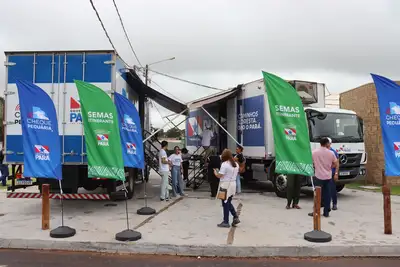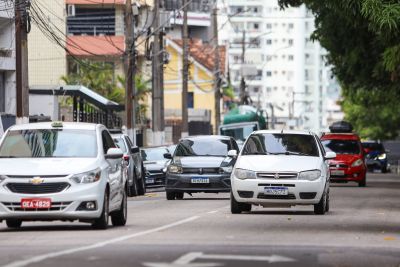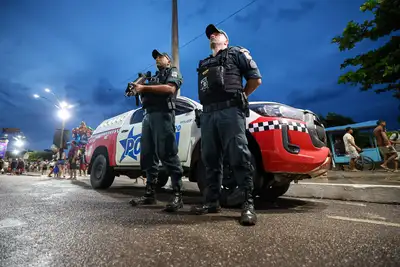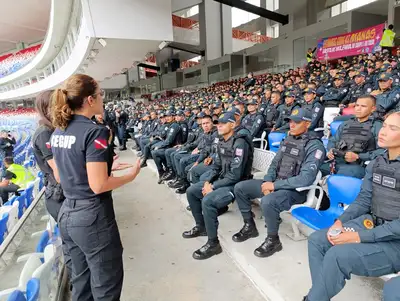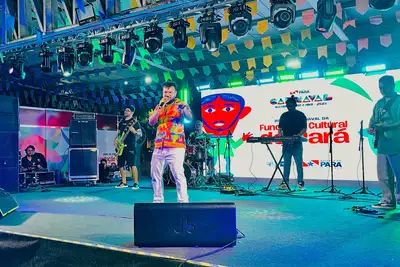Students from Pará strengthen environmental education with the planting of fruit trees
Public school students from Capitão Poço sow citizenship and a sustainable future by cultivating açaí, acerola, soursop, and orange, as well as species for shading.
Training young people who are increasingly committed to protecting the environment is a priority at the Oswaldo Cruz State School, in the municipality of Capitão Poço, in the Rio Capim Integration Region, northeastern Pará. The educational unit is a reference in projects that raise ecological awareness and is always mobilizing the school community in debates and sustainable initiatives through the Environmental Education curricular component, implemented by the Government of Pará, via the State Department of Education (Seduc).
Students from "Oswaldo Cruz" - which is part of the Blue School Brazil Project, supported by the Ministry of Science, Technology and Innovation (MCTI) - participated in a tree planting project, with the planting of fruit trees in state and municipal schools.
"Pará is a key player in discussions about the environment and climate, for Brazil and the world. Our schools have the Environmental Education component for the development of feasible actions that make a difference in the learning and lives of our students. Education is the key to changing everything. It is through it that we can break paradigms and move forward. It must be at the center of environmental discussions, and that is what we are doing and prioritizing here. Congratulations to the students and the entire team at Oswaldo Cruz School, not only for the idealization of an important project within the school itself but also for expanding it to others in the region. This community perspective makes all the difference," said Rossieli Soares, State Secretary of Education.
Awareness - Among the species planted are açaí, acerola, soursop, and orange, as well as trees that contribute to shading and thermal comfort. The proposal aims to expand green areas, stimulate healthy habits, foster ecological awareness, and strengthen ties between schools in the community.
"Our new theme is 'Sustainability in Motion: An Inter-school Journey of Environmental Education.' The Oswaldo Cruz State School reaffirms, once again, its commitment to the formation of conscious and responsible citizens regarding the environment," emphasized Geography teacher Altielis Lima, coordinator of the Project.
This year, the school unit continues to develop innovative initiatives by promoting inter-school work that involves planting fruit trees and shading trees in other educational institutions in the state and municipal networks.
The students act as multipliers of sustainable practices, informs teacher Altielis Lima. According to him, "this Project is very important because it goes beyond planting. It brings ecological awareness, strengthens collaboration between schools, and contributes to a greener and healthier future. We are learning, in practice, how to take care of our planet, improve air quality, encourage healthy eating, and make our school environments more beautiful and welcoming."
Greener future - For student Maria Eduarda, from the 9th grade of Elementary School, "the reforestation project is essential, both for the environment and for us, human beings. It helps improve air quality, contributes to the balance of the ecosystem, and also brings benefits such as shade, fruits, and a more pleasant environment. Besides the fruit trees, the planting and preservation of shaded trees are fundamental for thermal comfort and the well-being of all. I am very happy to be part of these actions, which show how much we can contribute to a greener and more sustainable future."
Maria Clara, from the 2nd year of High School, assured that she has "a lot of pride in being part of this Project. It is an initiative that encourages our school - and others as well - to have a greater commitment to the environment and sustainable practices. This year, with the guidance of teacher Altielis, we started an inter-school project that has filled us with pride. We are taking our environmental actions to other schools, both in the state and municipal networks, promoting tree planting with seedlings of fruit trees. I feel that we are making a difference, and that inspires us to continue. Of course, it is gratifying to know that we are inspiring other people out there."
Pioneering - The State Department of Education (Seduc) has been offering the Environmental Education component in all stages of education, mandatory in state schools, since the first semester of 2024. This component can be adopted by municipalities, based on the Environmental Education, Sustainability, and Climate Policy.
Seduc emphasizes that the environmental content makes Pará a pioneer in ensuring a mandatory curricular component in the area of sustainability, encouraging the participation and engagement of students in discussions about fundamental agendas for Pará as the host of the United Nations (UN) Conference on Climate Change (COP 30), in November of this year, in Belém.
Ocean culture - Aligned with the 14th Sustainable Development Goal (SDG) of the UN, which seeks to preserve marine life by 2030, the Blue School Project, with the support of the Ministry of Science, Technology and Innovation, is being implemented in schools across Brazil. The initiative aims to promote ocean culture among students, encouraging awareness of the importance of aquatic ecosystems and the need for their preservation.
The Blue School Project was initiated in Portugal and proposes an integrated approach to the oceanic universe in the school curriculum, stimulating the development of critical and creative thinking.



